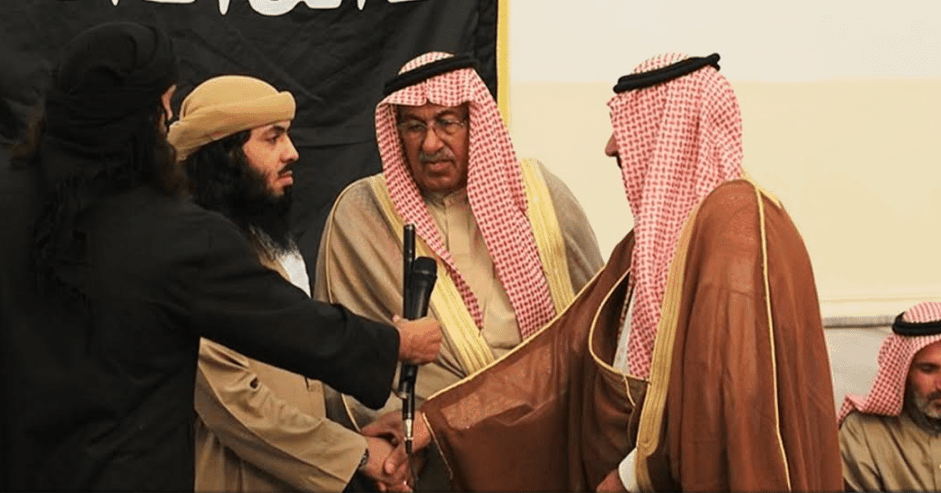This post is also available in:
![]() العربية
العربية
Omar Saif – Deirezzor24
The tribe is considered as the backbone of the social system governing the social relations in Deir Ezzor province. The Assad regime realized the importance of the tribe for the community of Deir Ezzor, so it planned to subjugate it to its rule by the building of strong relationship with tribal leaders, and giving them enormous privileges. At the same time, the regime also manipulated the families of his loyal tribal leaders by keeping them busy with fighting about who can win more seats in parliamentary election of each year.
Since almost 10 years, the control of tribal leaders began to decline because of the social change that took place in the province, limiting their role to the social aspects only and some other features.
Since the first day of the Syrian Revolution in Deir Ezzor, the locals would protest against the regime based on their intellect and conscious. In other words, their tribal origins had nothing to do with their anti-Assad protests. Despite the fact that one of the protest, which was held on a Friday, was named the Friday of the Tribes, they only chose that term to motivate and incite more people to join the revolution.
This negative and disappointing attitude of many of the tribal leaders caused a big shock for the revolutionary society, especially after the regime exploited this relationship and held two conferences for the tribal leaders of the eastern region, one in Damascus and the other in the city of al-Asharah. On one hand, the regime tried to solve the dispute between the rebels through these meetings, and on the other hand between their clans and families, while they were at the same time using the influence of tribal leaders to put pressure on their people
There was also an honorable attitude of some tribal leaders, as they backed and supported the protestors. Many of their sons became an essential part of the revolution.
The regime had to play his old game: the card of the parliament membership. Therefore, a number of people from those tribes entered the parliament and sided with Assad against the revolutionaries.
A group of tribes sided with the regime and went with it fully, even some of them worked as Shabiha of the regime and called for the killing of their compatriots, such as Ahmad Shalash who is from one of the tribes of the province. Although he spent most of his life outside the province. Some remained in the ranks of the regime without the committing of any atrocity and the calling for the suppress of the voice of those protesting on the streets. Some worked in the committees of national reconciliation that encouraged the suppressing of the revolution and the return to the rule of the regime, taking advantage of their influence and their strong relationships with people.
The second group have stood by the rebels since the beginning of the revolution. They took up arms against the regime and even attempted to create revolutionary institutions, which were based on the tribe in cooperation with some tribal leaders. They believed in the significance of those institutions as they served as a means to put an end to tribal tensions with the tribe in the province.
The third group preferred to remain in areas under the control of the Assad regime, using their tribal positions as a shield to protect themselves from all risks.
After Daesh entered the province of Deir Ezzor, they attempted to obliterate the presence of the tribal system, using religion as a means to achieve that. Some tribes fought bloody battles against the organization for six months, during which many of their sons were killed. Afterwards, the tribes ended up with two choices: whether they join Daesh, which was chosen by some tribes who are still living under the group control, or to leave the province for neighboring countries such as Turkey.
Even though the tribe has some disadvantages, it remains as an essential part of the social structure of Deir Ezzor. However, it should be consistent with the goals of the revolution that include the social, political, social and cultural domains. This is because it is the only way the revolution in Deir Ezzor can succeed.










